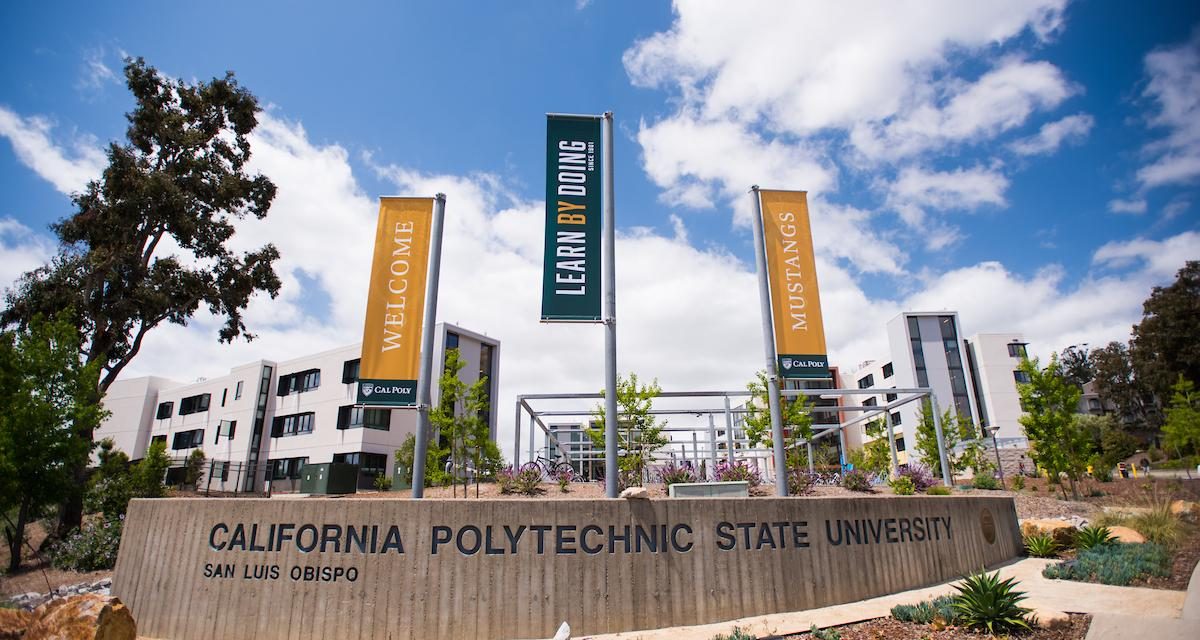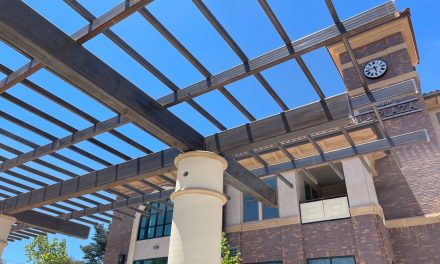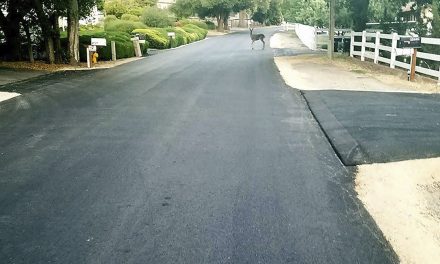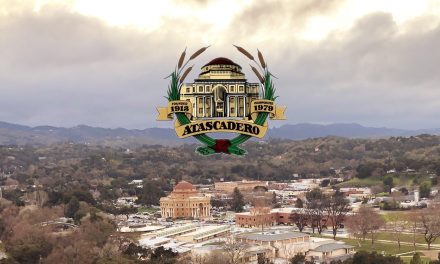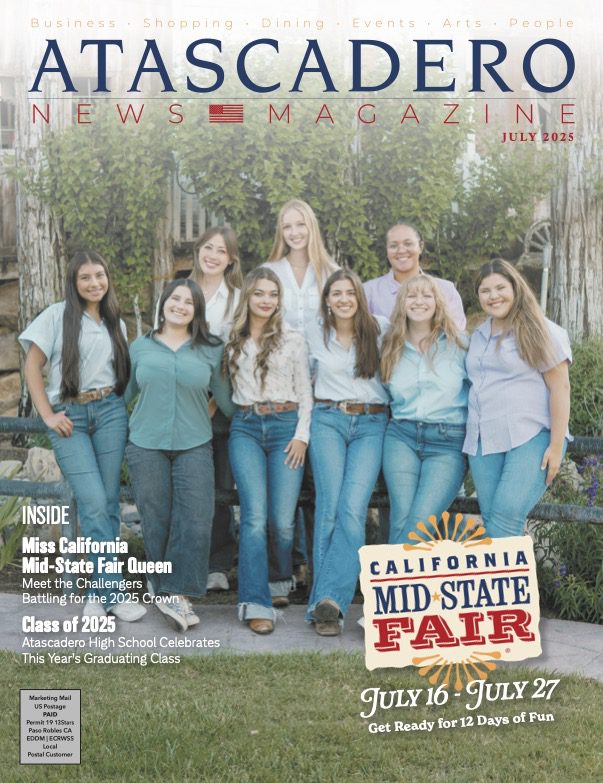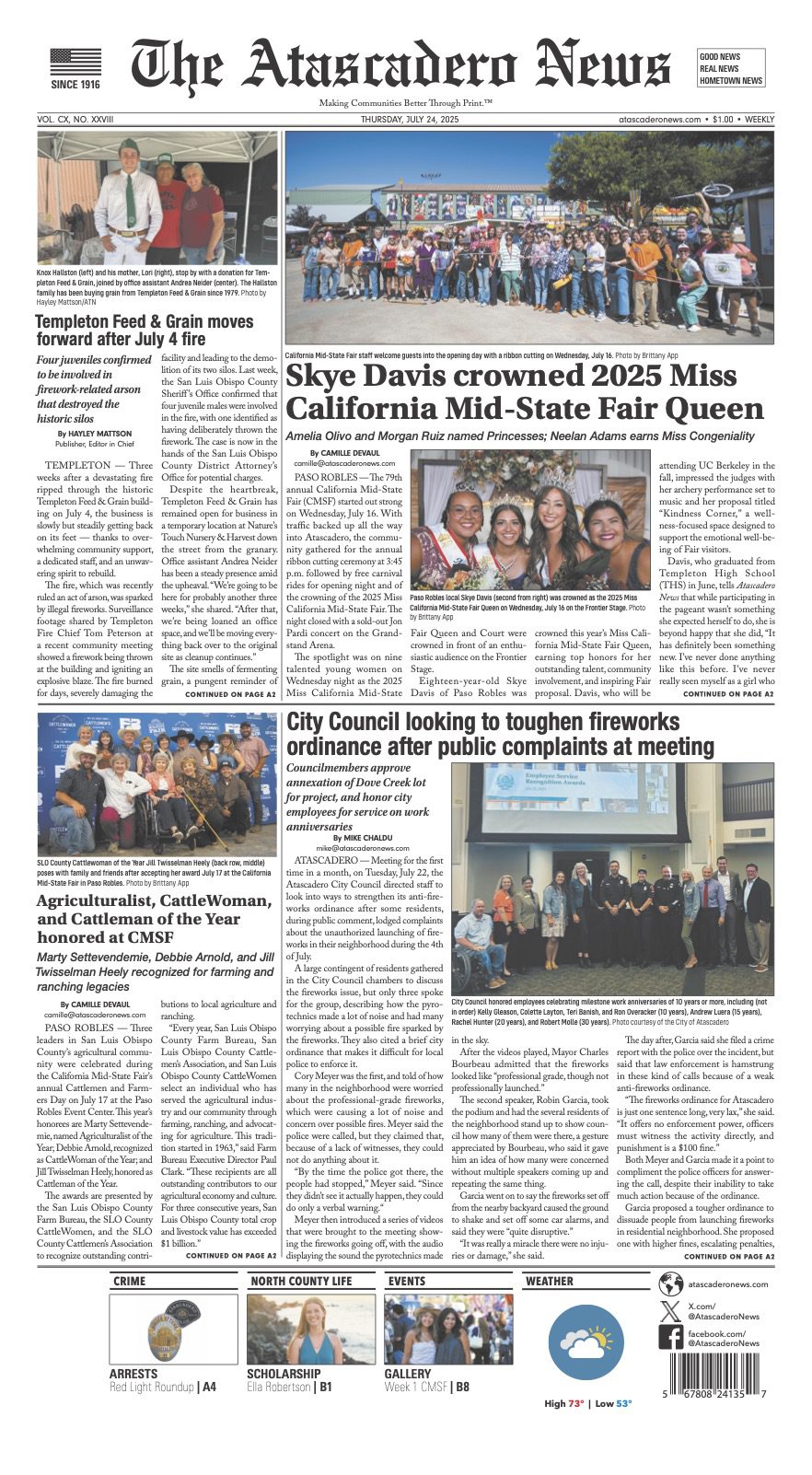SAN LUIS OBISPO — An interdisciplinary group of Cal Poly faculty and staff, partnered with industry and community members, have received support from the university to officially establish a unique institute to research wildfires and risk reduction strategies, tactical and technical firefighting practices and more resilient methods of building in fire-prone areas.
The Cal Poly Wildland-Urban Interface (WUI) FIRE Institute will focus on the area known as the wildland-urban interface, which is where the natural environment meets the built environment. Fires in the wildland-urban interface make up the most frequent source of declared disasters in California and are becoming increasingly frequent and damaging because of climate change.
While researchers at Cal Poly have been studying WUI fires, prevention and firefighting strategies for years, support from the university’s Strategic Research Initiatives (SRI) program has allowed for the official establishment of the institute. This status will enable the researchers to bring more projects and funding to Cal Poly and will allow better coordination with other universities studying the field.
The WUI FIRE Institute is the first of its kind at a California university. Its status as a research institute will open up more opportunities for funding and projects related to WUI fires. The institute aims to reduce wildfire losses on an international scale via public education, applied interdisciplinary research, and workforce development. The faculty involved with the institute will recruit graduate students to attend Cal Poly to work with institute research. They have partnered with industry leaders to provide internship opportunities for both undergraduate and graduate students.
“We’ve had faculty across the university doing work in wildland-urban interface fires and wildland fires for decades,” said Professor Chris Dicus in the Natural Resources and Environmental Sciences Department. “Thanks to these cross-disciplinary relationships at Cal Poly and with local and statewide partners, we have an incredible infrastructure on which to build the WUI FIRE Institute.”
Professor Christopher Pascual in the Mechanical Engineering Department and graduate coordinator of the Fire Protection Engineering Program added, “We are focused on holistic, interdisciplinary, solutions-oriented work that can help communities better plan and build with these fires in mind and help communities that have been affected rebuild and deal with the aftereffects of fires.”
In addition to Dicus and Pascual, faculty members involved in the creation of the institute include Richard Emberley of the Fire Protection Engineering program; Marc Horney of the Animal Science Department; Fred Mowrer of the Fire Protection Engineering program; Cornelius Nuworsoo of the City and Regional Planning Department; Aric Shafran of the Economics Department; Bill Siembieda of the City and Regional Planning Department; and Matthew Zoerb of the Chemistry Department. The effort is led by Dan Turner, a retired Cal Fire chief and business manager of the San Luis Obispo County Fire Safe Council.
“It’s crucial that we have a shared focus, both on helping firefighters address what they’re challenged by in the field and on helping communities understand and mitigate the negative consequences of these fires,” Turner said. “We have to do our part to educate the public and policymakers on how these fires happen and what we can do to make them less destructive.”
Renee Reijo Pera, Cal Poly’s vice president of research, economic development and graduate education, added, “We have seen how wildfires devastate our state year by year, and they are becoming increasingly deadly and destructive due to climate change. They are a critical threat to our state, and it’s crucial we use our resources to address this threat.”
The project is funded through the Strategic Research Initiatives (SRI) program, a partnership between Academic Affairs, Research, Economic Development, and Graduate Education and University Development. The SRI program identified proposals from Cal Poly faculty and staff that addressed problems facing the Central Coast and the world and emphasized the role of undergraduate and graduate student research experiences.

